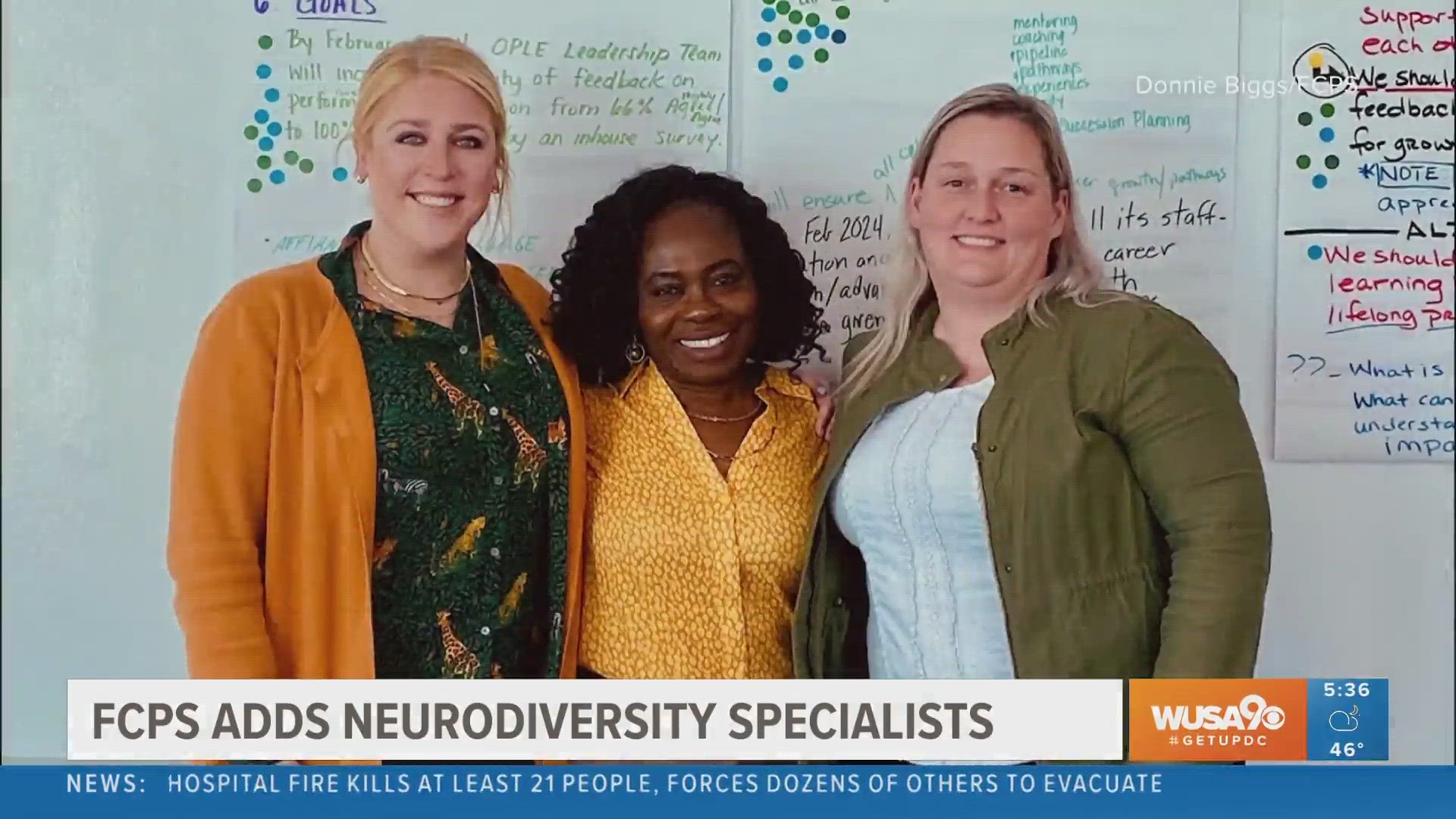FAIRFAX COUNTY, Va. — Fairfax County Public Schools (FCPS) is pioneering the next step in inclusion by creating the country's first Neurodiversity Specialists.
They'll be focusing on supporting students who are neurodiverse, or those who may not think, learn, or express themselves in the "typical" way. Think those on the autism spectrum or those with dyslexia.
Instead of thinking about their education in terms of what they can’t do, FCPS is working to adapt to their strengths.
So, they hired three different Neurodiversity Specialists.
The first is Kristen Haynor, whose role is called Neurodiversity Specialist.
In that role, she'll be working with students, educators, and families to reframe their thinking and school culture.
Nonye Oladimeji is the district's new Twice Exceptional Education Specialist. She works with students who are identified as academically gifted in one or more areas of "exceptionality" and identified as having a disability.
Fairfax County School Board Chair, Rachna Sizemore Heizer's, son falls into this category.
“I noticed that with his education and a lot of students with disabilities, we just look at all of their deficits, right, and we don't make space for their strengths," she said. "And we really need to expand our own lived norms to include the lived norms of folks who are neurodiverse. And that doesn't mean you don't provide support, it doesn't mean you don't provide a continuum of services, you just change your culture.”
The third specialist is FCPS' Dyslexia Specialist -- Rachel Rubio -- who will be focusing on making sure teachers have the tools to recognize the signs of dyslexia.
The district said about 20% of students throughout the country, so a large population.
The overall goal is to finally adapt public K-12 education to meet the needs of more kids.
"The whole concept of neurodiversity, which, by the way, has been something that corporations have championed for quite a while, especially tech companies," Sizemore Heizer said. "If you look at Microsoft, and Google, they all have Neurodiversity initiatives at colleges; they've created Neurodiversity initiatives and programs. So really, it's something that normally K-12 would be leading, but it's almost going backwards."
And the idea came from the Fairfax County School Board Chair, whose son is neurodiverse.
You have a chance to learn more about the district's neurodiversity initiatives at a webinar on April 28 at 10 a.m.

